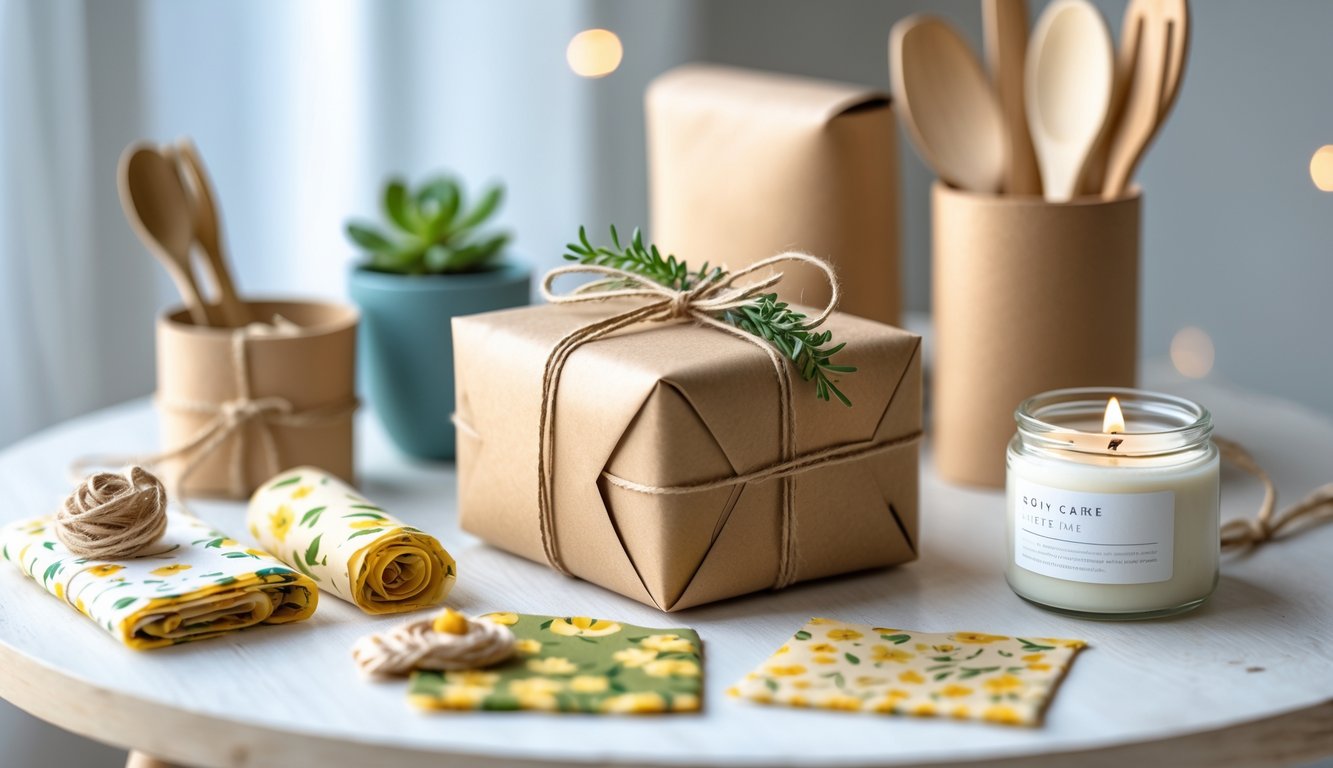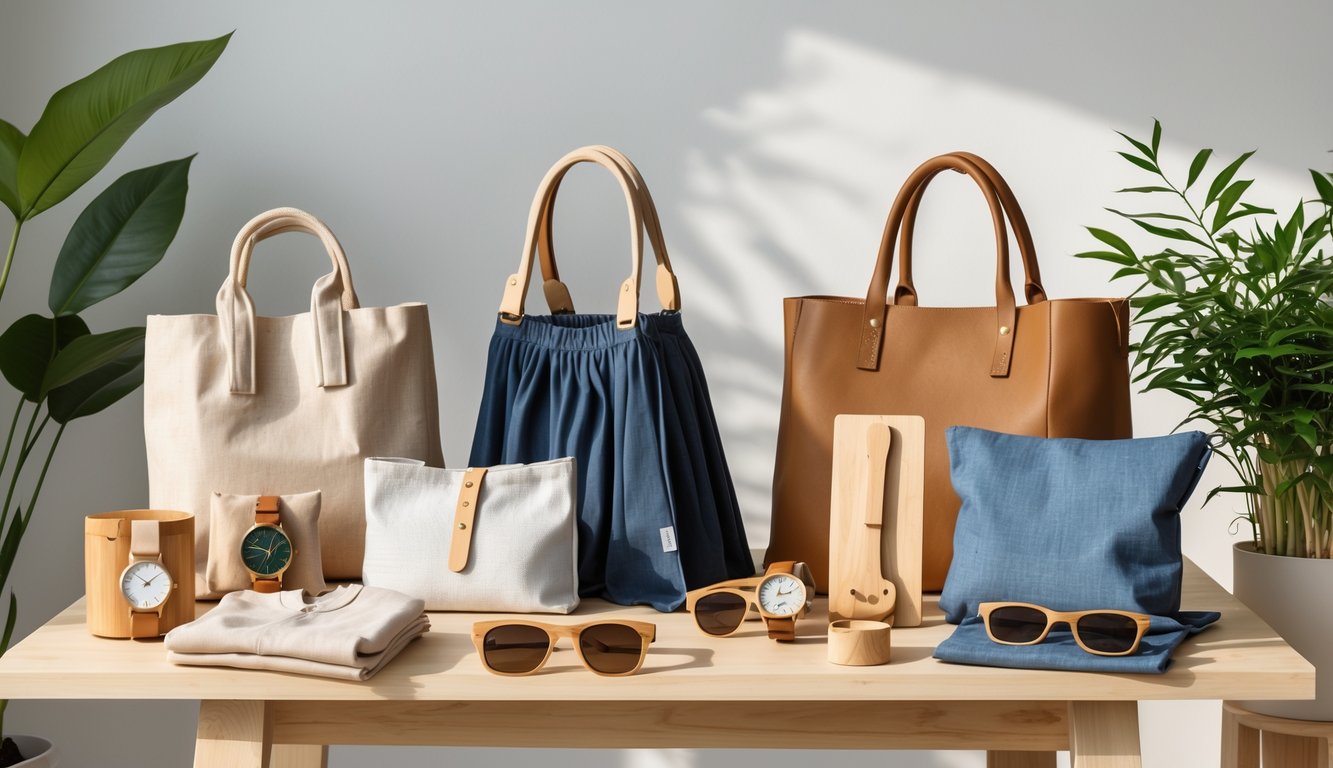
Fashion and Accessories: Stylish Yet Sustainable

Every boutique shouts “sustainable” now, but it’s not just recycled slogans anymore. Suddenly, organic pajamas are everywhere, and bamboo socks show up at every checkout. Too many options, honestly.
Organic and Fair Trade Apparel
Look, I used to think “eco-friendly shirts” meant boxy beige sacks for people who eat tempeh for breakfast, but now my feed’s full of brands shoving organic pajamas and fair trade tees in my face, and—shockingly—they actually fit. I mean, racks of organic-fiber pajamas sometimes cost more than designer stuff. Forbes says fashion’s spewing out 10% of the world’s carbon emissions, so, yeah, every shirt’s basically a micro-sized climate referendum. Or is it? I don’t know. Feels like it.
Who’s best? No clue. I get seduced by linen sets, then read Camille Styles or whatever, and they’re like, “Don’t buy anything, just wear what you own.” Which—ugh—fine, but I still want GOTS-certified cotton, not plastic masquerading as a T-shirt. I’m obsessed with supply chain receipts, fair wages, and real certifications, mostly because brands love to pivot from “ethical-ish” to “greenwashed” the second no one’s looking. I’ll lie awake at 2 a.m. thinking about that “organic” tee with zero fair trade proof. Not restful, but here we are.
Sustainable Bamboo Products
Bamboo: people won’t shut up about it, but honestly, I once bought “bamboo” socks that felt exactly like polyester gym socks, which was both disappointing and weird. Supposedly, actual bamboo viscose wicks sweat like a champ. Some bamboo stuff—like sunglasses, those clutch purses, or summer pajamas—uses half the water of cotton (allegedly), but brands bury that stat somewhere you’ll never find it.
CNN did a sustainable gift list for 2025 and, wow, bamboo snuck into everything—hair towels, sunglasses, gift sets, all hiding in Underscored’s eco roundups. Here’s my gripe: unless it says certified bamboo, it’s probably blended with rayon or, worse, mystery synthetics. So half the “eco” claim? Hot air. If your new pajamas smell like a bottle of Febreze, you’ve probably been had. I tried hand-washing mine and made things worse, so don’t trust me. Why can’t they just slap a QR code on every sock with actual emissions data? Wouldn’t that be easier?
Supporting Sustainable Brands and Artisans
Trends? I don’t know, but eco gifts and “sustainable brands” keep popping up in every gift guide and shopping cart. If you’re tired of guilt-washing your purchases, turns out, you’re not alone—people are calling out fake ethics and actually checking which brands walk the walk.
Spotlight on Ethical Gift Producers
So, I’m scrolling for birthday ideas, and every soap bar is “natural” now. Then I get handed a list—only brands with traceable supply chains allowed. Sustainable Jungle’s list of 23 ethical gift ideas—upcycled wallets, hand-painted ceramics, whatever—made me realize: the only brands getting real attention are the ones risking transparency audits, not just hashtagging “green.” The good stuff? Think artisan jewelry from vetted sources, zero waste beauty, solar-powered gadgets with actual repair options. Suddenly, the cheap stuff looks kinda sad.
Want a gift that’s not landfill in disguise? Look for recycled glass, bamboo, fair wage guarantees, and third-party checks (B Corp, Fair Trade, etc). Nielsen claims 73% of Gen Z will pay more for this, but do they? I forget. Brand stories matter now, but only if they back it up.
Shopping Local for a Greener Impact
Every time I “shop local,” I hit a farmer’s market, and half the stands still use plastic bags. Sometimes the best move is buying beans from the neighbor roasting organic coffee (with farm-to-cup proof), other times it’s overpriced art co-ops—ridiculous prices, but hey, no cross-country shipping.
I bought a plant gift once, felt smug, then left it on the train. Local gifts shift the impact map, supporting nearby jobs and pushing shops to stock upcycled stuff—sometimes they’re the only ones with bee-saving seeds or hand-dyed cotton throws. Cutting down on transport emissions actually matters, but have you ever seen it on a receipt? Me neither. Tilted Map’s annual guide digs up local gems, which I’d totally miss if I wasn’t paying attention.
Reducing Food Waste Through Thoughtful Gifting
Here’s what drives me nuts: holiday food waste. It’s everywhere. Everyone pretends to care, but the trash piles up. If I get another fruitcake, I’ll scream. Here’s what’s (sort of) working for gifts that actually cut down the waste, and what’s not.
Gifts That Promote Sustainable Eating
My aunt gave me a digital recipe app subscription—random, but honestly, it slaps. Zero waste and plant-based meal apps (like Forks Plant-Based Recipes) make it way too easy to use leftovers. No, you’re not doomed to endless soup. You can throw sad veggies in pasta, or, if you’re reckless, ferment everything.
Homemade food gifts? They’re a vibe. Jams from bruised fruit, granola in old jars—it looks like you tried (sometimes you did), and you skip all the packaging. National Environmental Education Foundation says Americans dump a million tons of extra trash per week during the holidays. So, yeah, every edible gift helps. Those zero waste ideas aren’t just hype—they work if you don’t give something gross.
Reusable produce bags, lunch kits, silicone lids (which my family always loses)—those gifts aren’t just TikTok bait. They actually cut plastic wrap, and mostly, they make people waste less because…convenience. If someone whines, let ‘em. At least their fridge won’t reek.
Educational Gifts About Food Waste
A teacher once gave me “Waste: Uncovering the Global Food Scandal,” wrapped in newspaper. More memorable than any gadget. Books and documentaries break through the “be sustainable!” noise. If you read that “up to 40% of food in the U.S. is never eaten” (USDA, 2023), you’ll side-eye your leftovers too.
Workshops and digital classes on zero waste cooking matter. My neighbor’s kid made vegan pesto from carrot tops after one session—her brother complained, but now everyone thinks twice before tossing stuff. Even a fridge magnet with produce shelf lives can change what ends up in the trash. No lectures needed. Just stick the info where people can’t ignore it.
Honestly, the most boring gifts—books, course vouchers, resource charts—quietly change habits way more than flashy gadgets. Educational gifts about food waste aren’t pretty, but the impact adds up every trip to the bin. My brother ignored all of them until someone put his brown bananas in pancakes. So, yeah, practical wins.